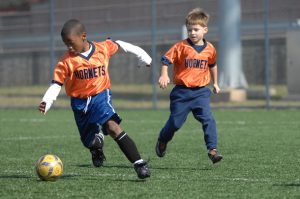The Bill Hartman Podcast for The 16% – Season 16 – Number 7 SUBSCRIBE for even more helpful content: YT: https://www.youtube.com/@BillHartmanPT IG: https://www.instagram.com/bill_hartman_pt/ FB: https://www.facebook.com/BillHartmanPT WEB: https://billhartmanpt.com/ This weeks topics: 0:00 Today’s Q&A is with Matt who got permission to share client photos that offer opportunities to identify movement strategies used to manage center of gravity. While photos don’t […]
young athletes
Q & A for The 16% – Assessing and Training Young Athletes
Today’s topic is Long-Term Athletic Development playing off a question I got at askbillhartman@gmail.com. It’s a common concern for parents of young athletes. It’s also related to a blog that I reposted today from 2014 that still applies. Grab a @neurocoffee. Here we go. From Adam: My son, who is 13 years old, is a […]
Thoughts on Long-Term Athletic Development – A Repost from 2014
Thoughts on long-term athletic development… 1. In a sporting environment, athletes perform based on learned prediction models associated with experience. 2. Research supports the understanding that motor [movement] variability facilitates motor learning and prediction capabilities that determine the ultimate level of performance. 3. Greater movement variability [movement experience] is associated with a faster rate of […]
Q & A for The 16% – Young Athlete Development and ISA Compensations & Strategies
My @neurocoffee is in hand and here’s this morning’s Q&A with a little bit of long-term athletic development feel to it. From Nate: I work do a lot of work with athletes in the age groups of 11-25 and I was curious if you think ISA compensations take time to manifest and therefore hard to […]
Thoughts on Long-Term Athletic Development and Training Young Athletes
This was actually a Facebook post that did pretty well in the “likes” department so I thought I’d build on it a bit for a blog. Thoughts on long-term athletic development… 1. In a sporting environment, athletes perform based on learned prediction models associated with experience. 2. Research supports the understanding that motor [movement] variability […]



